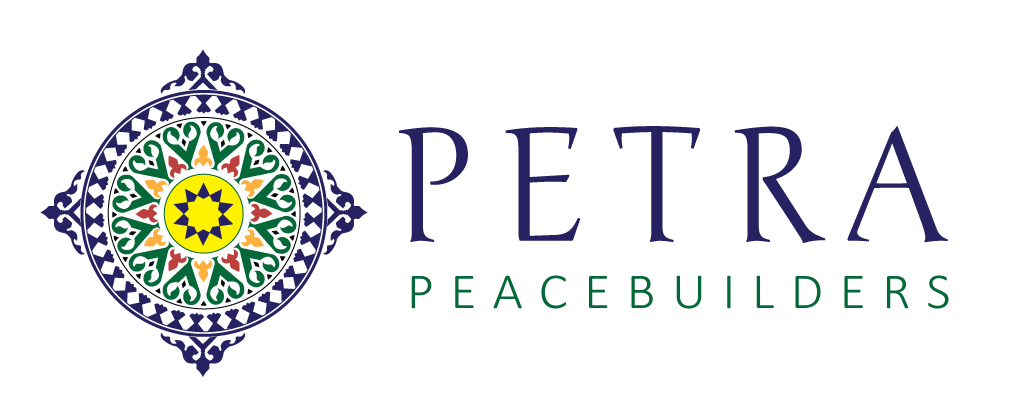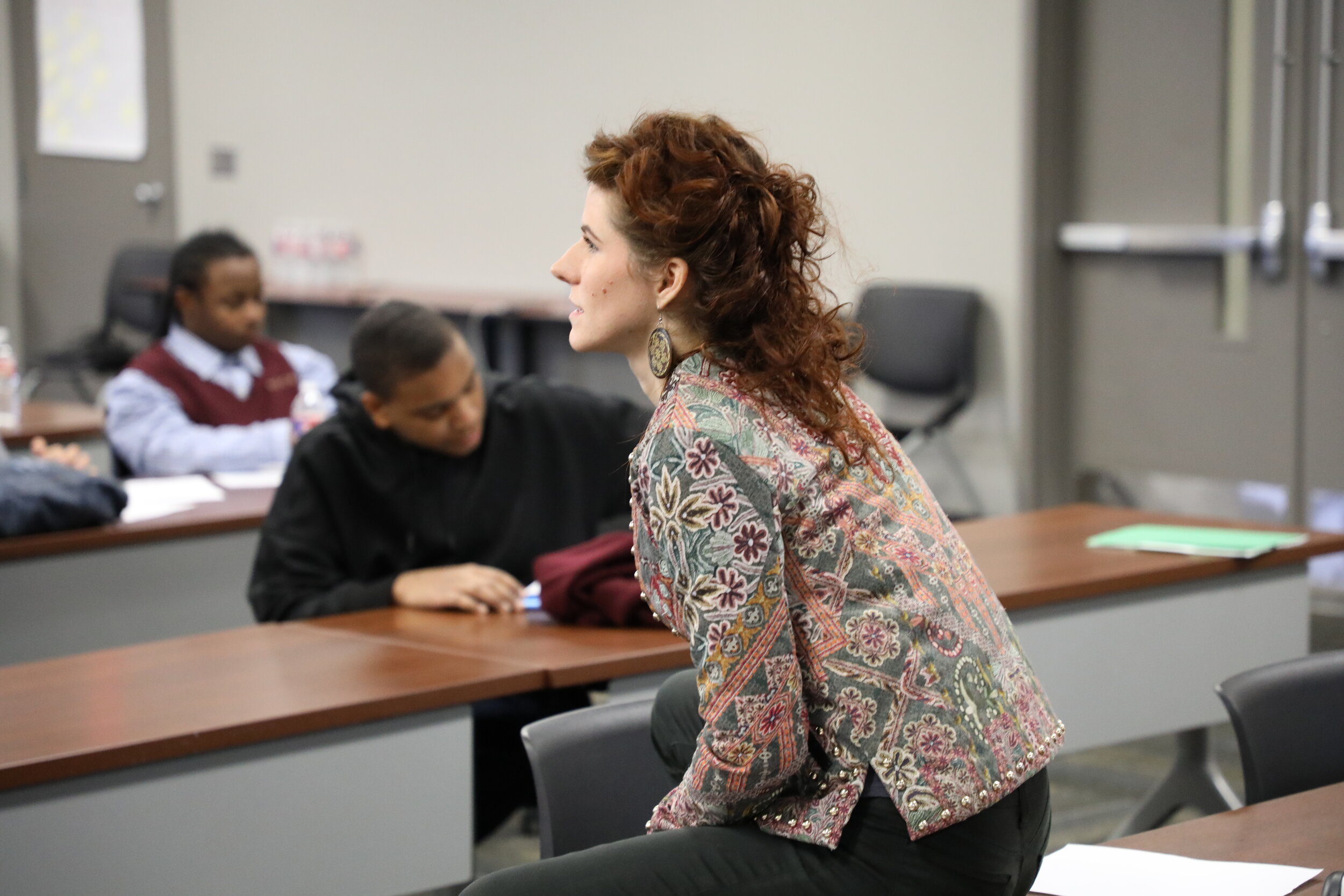At Petra, our mission is to empower the people who are building peace to transcend challenges with breakthrough resilience in their global peacebuilding endeavors. Some of the larger humanitarian organizations provide post-trauma therapy for their staff, but there remains an enormous need for the provision of preemptive coaching for resilience and burnout prevention, which is Petra’s special forte.
The status quo in the sector is to ‘tough it out’ until things reach a critical point. By then, intervention is often too little, too late. Coaching is a valuable approach to help professionals building peace deal with the many issues and challenges of their work before they become problematic. Instead of waiting to reach this crisis point, the relationship with a Petra coach helps peacebuilders look ahead, plan ahead, and craft and implement tailored resilience strategies with a coach who knows the field realities and challenges firsthand.
Coaching is a valuable approach to help professionals building peace deal with the many issues and challenges of their work before they become problematic.
Coaching for peacebuilders and other international humanitarian and development professionals requires an expert understanding of cross-cultural fieldwork, international politics, global conflict dynamics, and especially how the effects of these negatively impact humanitarian staff. Coaching from our wide field experience is how Petra Peacebuilders fills an important niche in the staff care of global peacebuilders with humanitarian coaching.
Who you are impacts your capacity to build positive peace
Think for a moment about proactivity in the context of peacebuilding: So much of the world’s conflict resolution is merely the reaction of politicians, governments, and civil society to the negative and violent challenges that assault them. What we often call ‘peace’ is really just the absence of conflict. The typical reactive approach to conflict resolution often fails to address and eliminate the root causes of conflict. It is also more costly, in both human and economic terms, than the preemptive pursuit of true, positive peace.
Positive peace is a much more proactive term that implies a striving for justice, wellness, and societal health without waiting until a conflict becomes untenable. In this sense, positive peace is closely aligned with conflict transformation, a more intentional process in which the old ways are supplanted with new ways that are healthier, more sustainable, more just, and more humane.
Transformative experiences
At Petra, we see our work as being in the same vein as the latter of these two above concepts -- that of positive change. We lead our peacebuilding clients through transformative experiences that result in stronger people who conduct more effective work in the field. We realize that crises often occur in this line of work, but unlike much of the rest of the sector, our approach to coaching and other forms of staff care doesn’t wait for the crisis to occur before taking health and self-care seriously.
Ultimately, the more proactive the peacebuilding sector is about creating health themselves, the more likely this proactive spirit will shape the way we approach our work to transform conflict and build positive peace. This fundamental understanding -- that who peacebuilders are within impacts their capacity to build positive peace -- is the foundation of Petra's approach to coaching.
So what is coaching, exactly?
Coaching is generally undertaken with clients who are self-aware and have the internal drive to make changes and formulate solutions
Coaching is generally undertaken with clients who are self-aware and have the internal drive to make changes and formulate solutions. Coaches are not counselors, psychotherapists, teachers, trainers or consultants, although they may use some of the same skills and tools. Some coaches may have professional credentials in psychology; most do not. That said, most coaches collaborate with therapists when a client requires this form of intervention. This is particularly appropriate in cases when a client has experienced trauma, secondary trauma, or a critical incident.
Professional coaches employ specific skills:
Active listening
Asking questions that spark new ways of thinking
Enhancing awareness, leading to new learning
Helping design action steps as a means to meet client-identified goals
Following up to increase accountability and implementation
Coaching is not teaching per se, and it’s not about the coach providing solutions for the client as a consultant would. The coach’s job is to lead clients to take ownership of the problem and personalized solutions based on his/her context, experience, resources, strengths, and passion. The client decides which goals or problems to work on while the coach is there to ask questions, listen, draw out information while helping to reveal blind spots, and support personal learning. Coaches can provide helpful input or suggestions if the client asks, but the best answers always come from the coachee who is really the expert on his or her own life.
Petra’s approach to coaching for peacebuilders
We incorporate highly specialized, trauma-informed coaching into all of our programming to help peacebuilding professionals craft the strategies they need to stay healthy and effective. Our coaching also aims to provide long-term accountability and relationship, something lacking in the sector's current resilience training efforts for their staff. Training may provide needed knowledge transfer of resilience-related topics, but it fails to ensure the implementation of new learning via client action plans in the way we see in the training-plus-coaching approach.
Petra Lead Trainer-Facilitator, Charlotte Cline
In the typical training model, there is little to no sustainable relationship in the trainer/trainee dynamic. In coaching, however, the coach/client relationship is renowned for being an especially life-giving one. At Petra, we are all about the power of transformative relationships!
Petra coaches:
Facilitate the exploration of needs, motivations, desires, skills and thought processes to assist the individual in making real, lasting change.
Use questioning techniques to facilitate client’s own thought processes in order to identify solutions and actions rather than takes a wholly directive approach
Support the client in setting appropriate goals and methods of assessing progress in relation to these goals, as well as encourage a commitment to action and lasting change.
Creatively apply tools and techniques which may include one-to-one training, facilitating, counseling & networking.
Maintain unconditional positive regard for the client, which means that the coach is at all times supportive and non-judgmental of the client, their views, lifestyle and aspirations.
Ensure that clients develop personal competencies and do not develop unhealthy dependencies on the coaching or mentoring relationship.
Evaluate the outcomes of the process, using objective measures wherever possible to ensure the relationship is successful and the client is achieving their personal goals.
Work within their area of personal competence and possess qualifications and experience in the areas that skills-transfer coaching is offered.
Manage the relationship to ensure the client receives the appropriate level of service and that programs are neither too short, nor too long.
Is it coaching or counseling?
Petra sees coaching and counseling as a powerful duo to provide clients with the very best care possible, especially in the event where trauma counseling is required.
There is no doubt that in our field, there are times when a client's mental health and emotional or psychological needs surpass those that a humanitarian coach is qualified to meet. If you should need psychological or psychiatric care, Petra has a resource database of vetted health care professionals to whom we can refer you. These are professionals who we personally know and trust. Petra is privileged to have them as part of our caregiving network, and we can unequivocally say that you will be in good hands with them.
Lead coach, Bianca Neff (right) and Charlotte Cline coaching a client in Afghanistan
We are always telling potential peacebuilding clients: If you're not healthy, let's make sure you get healthy, either with us or with someone in our network. Once you're healthy, let's talk about what kind of coaching you might need in order to stay in a good place so that you can maximize your effectiveness in your peacebuilding work. In this way, our coaching provides the perfect platform for longer term, non-clinical support and relationship after psychological intervention.
Confidentiality
Effective coaching is rooted in confidentiality and trust. Coaching can be successful only if coachees are able to discuss every aspect of an issue or challenge with their coach. The coach may need to listen to personal problems or private information that must be kept confidential, and this is our commitment. We may need to make an exception if it involves criminal activity or activities harmful to the team, its clients, or the organization; or if it affects the safety and welfare of other people in general.




